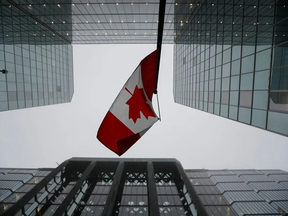In a press conference at the Chinese embassy in Ottawa, China’s new ambassador to Canada, Cong Peiwu, issued a stern warning to the Canadian government: do not follow the United States’ lead and formally back protesters in Hong Kong. According to Cong, such a move would cause significant damage to already strained ties between Beijing and Ottawa.
Background: Tensions Between Canada and China
The relationship between Canada and China has been tense for months, following the arrest of Huawei Technologies Co Ltd Chief Financial Officer Meng Wanzhou on a U.S. warrant last December. This incident sparked a diplomatic dispute between the two countries, with China retaliating by blocking imports of canola seed from Canada.
Cong Peiwu’s Warning
Ambassador Cong Peiwu emphasized that any attempt to back protesters in Hong Kong would be "very dangerous" and would have severe consequences for Canada-China relations. He stated:
"If somebody here really tries to … have this kind of law like that in the United States, it’s very dangerous. If anything happens like this it will certainly have a very bad damage on our bilateral relationship and that is not in the interests of Canada."
Context: U.S.-Backed Bills Supporting Hong Kong Protesters
The warning comes after the U.S. House of Representatives passed two bills last week aimed at supporting protesters in Hong Kong. These bills, if signed into law, would require the Trump administration to impose sanctions on Chinese officials responsible for human rights abuses and to block any U.S. government or entity from doing business with those same officials.
Canadian Government’s Response
Prime Minister Justin Trudeau was asked about Canada’s stance on supporting protesters in Hong Kong during a recent press conference. He stated that the Canadian government would continue to call for de-escalation and an end to violence, while urging dialogue between all parties involved.
In response to Cong Peiwu’s warning, Trudeau did not directly address the ambassador’s concerns but emphasized Canada’s commitment to protecting its citizens in Hong Kong.
Implications of China’s Warning
The Chinese government has consistently maintained that it does not interfere with internal affairs of other countries. However, the arrest of Meng Wanzhou and subsequent diplomatic disputes suggest otherwise.
China’s warning to Canada serves as a reminder of the complex web of relationships between nations. While some may see support for protesters in Hong Kong as a moral obligation, others view it as an opportunity to advance national interests or test the limits of international relations.
The Impact on Trade Relations
Tensions between China and Canada have already resulted in significant economic consequences, including the blockage of canola seed imports from Canada. If diplomatic relations continue to deteriorate, trade between the two countries could be severely impacted.
In a recent interview, Canadian farmers expressed concerns about who would buy their soybeans, given the strained relationship with China. The uncertainty surrounding trade agreements and future business prospects has left many wondering what lies ahead for Canada-China economic ties.
Conclusion
The warning from Ambassador Cong Peiwu serves as a stark reminder of the complex dynamics at play in international relations. While some may view support for protesters in Hong Kong as a moral imperative, others see it as an opportunity to test national interests or advance diplomatic agendas.
As tensions between China and Canada continue to escalate, one thing is clear: the relationship between these two nations has reached a critical juncture. Will Canada follow the United States’ lead on supporting Hong Kong protesters, risking further strain in relations with Beijing? Only time will tell.



